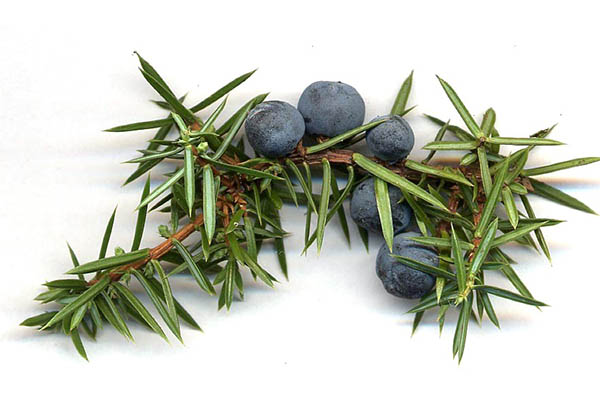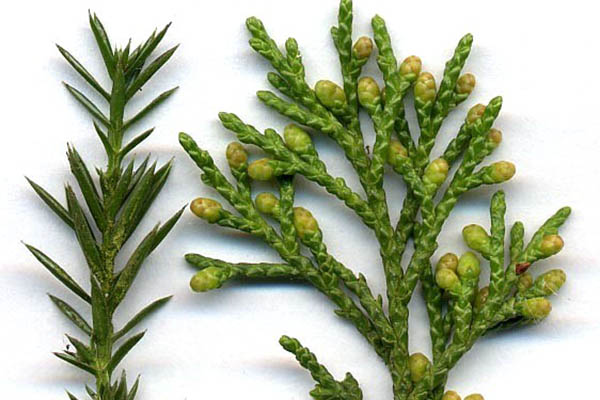
What are UTI’s? Urinary Tract Infections
Do you… Frequently or urgently need to urinate Often only pass small amounts of urine Have Pain or burning sensation when urinating These can be symptoms of urinary tract infections. There
Junipers are small, coniferous, evergreen plants in the genus Juniperus from the cypress family, Cupressaceae. There are approximately 50 – 67 species of Juniper widely distributed throughout the Northern Hemisphere, and over 170 cultured varieties throughout the world. The name Juniper is derived from the Latin word Juniperus which means evergreen. It is also known as Genvier, the term from which the word ‘gin’ is derived.
The highest known Juniper forest is found at an altitude of 16,000 feet in south-eastern Tibet and the northern Himalayas.
These plants vary in size and shape, from tall trees ranging from 20 – 40m tall, to low spreading shrubs with trailing branches. They have two distinctive types of leaves: the juvenile plants and seedlings have needle like leaves, while the more mature trees have small overlapping scale-like leaves. When found on these plants, the juvenile needle-like leaves are often seen in shaded areas, with the adult foliage found in full sunlight.
These plants can be either monoecious (having both male and female reproductive organs in the same individual), or dioecious (having the male and female reproductive organs in separate individuals). The female trees have a very distinctive seed cones, with fleshy, fruit-like scales which merge together to form a “berry”-like structure approximately 4 – 27mm long, with 1 – 12 unwinged, hard-shelled seeds. In most species, this berry is blue in colour, but some species can produce berries red-brown or orange in colour. These “berries” are very aromatic and are often used as a spice (Juniper berries), and this is the part of the plant used in culinary and medicinal practices. The berries contain minerals and vitamins such as copper, calcium, iron, phosphorous, zinc, magnesium, chromium, selenium, potassium, Vitamins B1, B2, and B3, and Vitamin C.


As a medicine, juniper extracts can be taken internally, inhaled, or applied topically. You can use Juniper berries fresh or dried as well as in a supplement form or as an oil. Many health food stores carry juniper berries in the herbs and spice section and can usually be purchased either dried, fresh, crushed, or whole.
The leaves can be burnt on top of a hot wood stove to create an incense which is said to be helpful in the treatment of colds.
The average dosage for this herb is 2 to 10 grams, or 1 to 3 teaspoons of crushed berries made into a tea by pouring boiling water over them and steeping for 10 minutes. Drinking the tea 1 – 2 times per day over the course of 4 – 6 weeks is considered generally safe.
The extracts of this berry contain terpinene-4-ol, which is a compound that stimulates the kidneys, as well as amentoflavone, a compound with anti-viral properties.
Juniper is often ingested in tea or supplement form. The tea is helpful in treating bronchitis, numbing pain, fighting inflammation, and increases the production of stomach acid, amongst many other benefits.
The essential oil can be applied topically in lotions or diluted with carrier oils such as coconut or almond oil. The essential oil may possibly be used without dilution depending on the strength and concentration of each particular oil type. Always read the packaging and instructions first before applying directly to the skin. When applied topically, juniper oils are helpful in the treatment of conditions such as acne, athlete’s foot, warts, skin growths, cystitis, psoriasis, and eczema. Due to its antibacterial properties, this oil is effective at treating cuts and wounds as well.
Juniper oil can also be:
Some texts and studies suggest that higher levels of Juniper can over stimulate and damage the kidneys. There is no evidence to suggest this, and this warning has been linked back to its first in print appearance by a man called Potter in 1898. The evidence Potter used was from experiments on mice using high doses of isolated essential oil derived from Juniper. Upon further scrutiny, scientists discovered that the reputation of Juniper as a renal irritant came from the use of oils containing high levels of pinenes which are known irritants to the urinary tract. It is always best to proceed with caution, however, and always consult with a doctor or physician before beginning a new supplement.
The herb stimulates the contraction of smooth muscles including the uterine muscles and should be avoided by women who are pregnant as it may cause miscarriage. It is not suitable for breastfeeding women or young children and infants.
Due to the herb’s ability to interfere with the action of glucose regulating medication, it should be used with extreme caution in people with diabetes or hypoglycaemia.
The berries may also interact negatively with certain medications as they inhibit a drug metabolizing enzyme in the human body known as CYP3A4. This enzyme is what metabolizes approximately half of the drugs and medications on the pharmaceutical market.
There is a fairly large list of medications that may result in toxicity if used in conjunction with juniper berries, or juniper essential oils. If you are using any medications, make sure to consult with a doctor before using this herb.
Possible allergic reaction can occur in rare cases and is characterized by a skin rash, swelling, or difficulty breathing. Discontinue using the herb immediately if a reaction occurs.
Toxicity can occur when a person consumes large amounts of juniper berries. Mild toxicity can occur due to the volatile oils it contains, though symptoms are usually limited to diarrhoea. Excessive consumption may cause kidney damage, convulsions, and DNA damage.
It is recommended that this herb is not used for more than 6 weeks at a time.

Do you… Frequently or urgently need to urinate Often only pass small amounts of urine Have Pain or burning sensation when urinating These can be symptoms of urinary tract infections. There
Disclaimer – Our intent is not to diagnosis but to offer information on therapy choices and practitioners. Information on this site is intended general educational purposes only. Any statements made are carefully referenced and any information, products or services discussed are not intended to diagnose, cure, treat or prevent any disease or illness. Please consult a healthcare practitioner before making a choice.